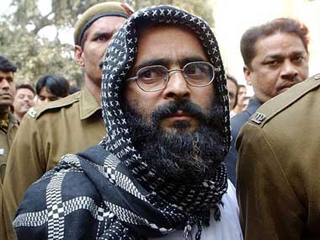Pathankot City


I start this piece with an anecdote going back to 2008-2009. The UPA government was in power and I was working with the British Broadcasting Corporation (BBC). Driving through Delhi’s VVIP area, I noticed over a period of several months a strange development — small cars and jeeps sporting yellow number plates of taxis with black and white silhouettes of a personality who became a symbol of Punjab’s secessionist movement. An event that led to the assassination of prime minister Indira Gandhi. In fact, he continues to be an inspiration for Khalistan supporters till date. Stickers of Jarnail Singh Bhindranwale, the man who took on the Indian State from within Amritsar’s Golden Temple and who was eventually killed in Operation Bluestar in the summer of 1984, on glasses on cars zipping through the city.
Surprised to see such brazen display of support for Bhindranwale, I mentioned it to a senior official in the security establishment. He looked surprised and said, “Some people have Bhagat Singh stickers for inspiration and others have Bhindranwale.” I questioned if a terrorist and a person who was taken on by the Indian Army for waging war against the State could be openly venerated. There was silence. I then asked what the police or security establishment would do if I were to drive around with a sticker of Osama bin Laden on my car. Now, he remarked, I will have to check that.
Our conversation ended there and now, over six years have gone by. Since last year I have noticed that these stickers have now become more explicit. Full length stickers of Bhindranwale with a bhaala or spear in one hand are now pasted on glasses of taxis and people drive around with those, quite happily, with no policeman detaining them and or even investigating the provocation for such stickers to be flaunted.
Some will argue that sporting such stickers is harmless. How does it matter if cabs sport such stickers? After all, the Constitution guarantees freedom of speech and expression. And by that same argument, some would argue today argue that JNU’s students were doing no wrong if they organized a meeting to honour Afzal Guru who was accused of plotting an attack on the Parliament in 2001 and whose death sentence was upheld by the Supreme Court of India. Similarly there’s nothing wrong if the Press Club of India premises were used to hold another such meeting where reportedly anti-India slogans were raised, they would argue.
Freedom of speech and expression are not unfettered rights. Every right has limitations. In the name of intellectual freedom people cannot be allowed to hold public meetings to honour men who worked against the State and its institutions. The Vice Chancellor of JNU was misled by organisers of this meeting where slogans were raised in memory of Guru and against the Indian State. And JNU is a Central University which is funded by the government and is not a private institution.
Can an institution allow such an activity or meeting? While the debate has taken a typical BJP versus others tone here, in the UK similar debate is in progress about the role and responsibility of universities that could be seen as soft on terrorism. A controversial Counter-terrorism and Security Act 2015 has been viewed by some as violative of human rights as guaranteed by the European Human Rights Law and is likely to face legal challenges.
Under the law, universities in the UK have been issued guidance which makes it incumbent on academics to check students spreading radical ideas, monitor them and to not provide a platform to radical speakers. Vice Chancellors have been asked to submit reports about preparedness to implement such guidelines and failure to follow guidelines would invite action.
Currently a major debate is in progress across academic circles on and off UK campuses on whether these guidelines impinge on academic freedom. To address such concern revised guidelines were issued to Universities in September last year that would allow “radical” speakers space if at the same time there is a speaker present who counters such an argument there and then.
In the case of JNU event there was no academic discussion that was underway. Instead it was a meeting where anti-India slogans were raised. Such a meeting to be organized on the campus of a government-funded university is certainly far from lawful. Anyone who believes such a meeting should have been allowed must be asked if public gatherings honouring LTTE’s Prabhakaran, India’s most wanted terrorist Dawood Ibrahim or Hafiz Saeed of JeM fame should be given permission next.
In the pre-9/11 days Britain proud of its democratic traditions allowed anyone and everyone to pitch tents in the UK and openly abuse and call for removal of governments abroad. Khalistan groups and LTTE were proudly hosted in London. Freedom of speech and expression were unfettered to such an extent that even radical Muslim clerics were allowed to hold sermons in UK mosques where they called for an overthrow of British governments.
The events of 9/11 and attacks on London underground changed all that.
The JNU Students Union president has been arrested on Friday on sedition charge and he has claimed innocence. He said, there were outsiders who came in and raised anti-India slogans. The cops must investigate the case and punish the guilty.
But, a democratic right that needs to be cherished and protected must not be allowed to be misused in the name of freedom. There is a line that divides right to have academic debate and support to terrorism or the idea of terrorism, that should not be violated or allowed to be. If it is, then the law must come into play.
Copyright © 2024 About Pathankot | Website by RankSmartz ( )
)